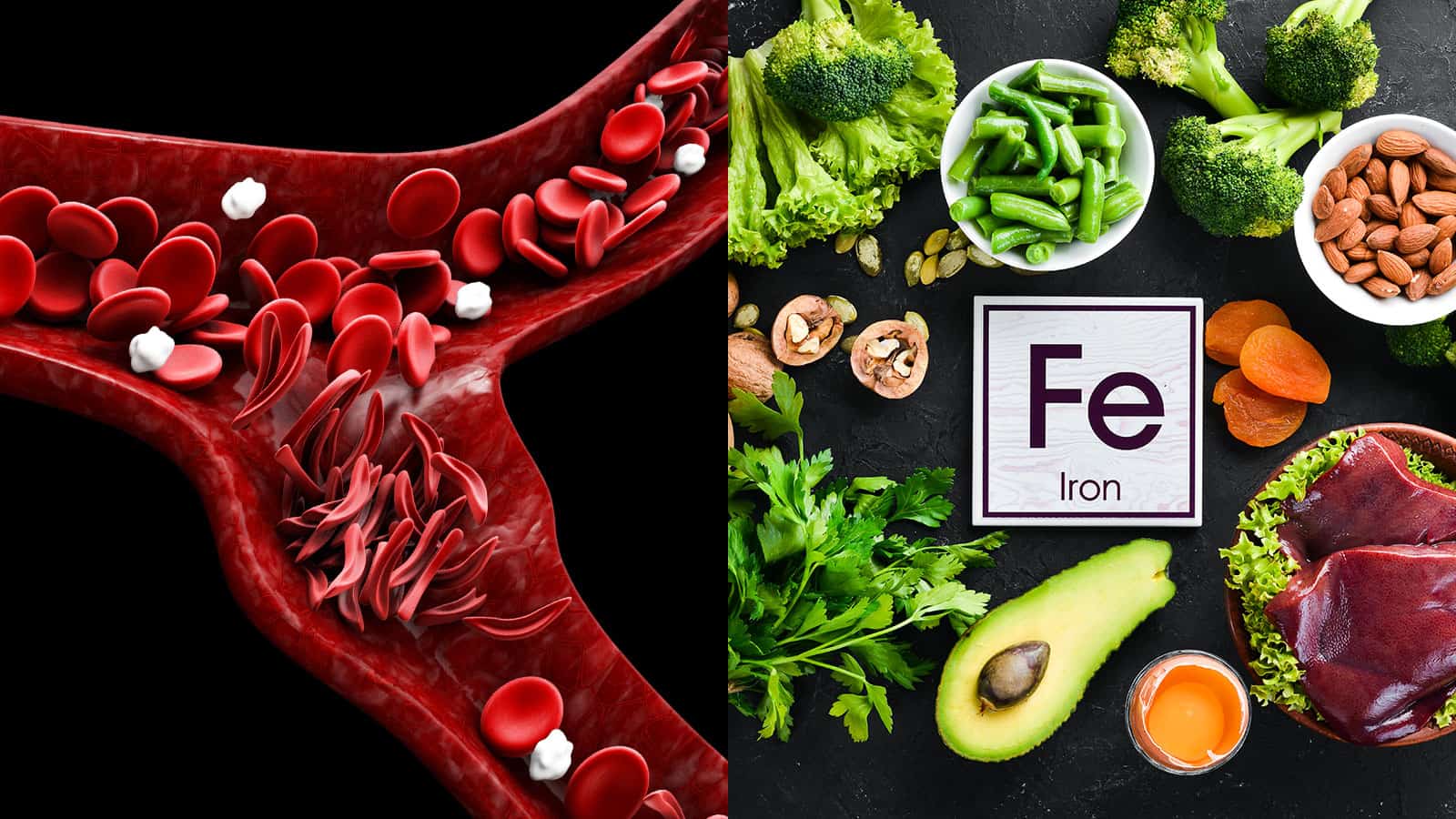Iron deficiency is a common nutritional concern that can have a significant impact on overall health and well-being. In this article, we will delve into the various aspects of iron deficiency, exploring its symptoms, causes, and effective treatment options. Let's unravel the mysteries surrounding this prevalent health issue.
I. Introduction
Iron is an essential mineral that plays a crucial role in
various bodily functions. From aiding in the transport of oxygen to supporting
energy production, iron is integral to maintaining optimal health. Iron
deficiency occurs when the body doesn't have enough iron to meet its needs,
leading to a range of symptoms and potential complications.
II. Symptoms of Iron Deficiency
Recognizing the signs of iron deficiency is crucial for
timely intervention. Common symptoms include fatigue, weakness, pale skin,
shortness of breath, and a general feeling of lethargy. In more severe cases,
iron deficiency can lead to anemia, a condition characterized by a low red
blood cell count.
III. Causes of Iron Deficiency
Understanding the underlying causes of iron deficiency is
essential for addressing the issue at its roots. Common causes include
inadequate dietary intake of iron-rich foods, poor absorption of iron by the
body, and increased iron requirements during periods such as pregnancy or
growth spurts. Chronic conditions, such as gastrointestinal disorders, can also
contribute to iron deficiency.
IV. Iron-Rich Foods and Dietary Recommendations
A balanced and nutrient-rich diet is key to preventing and
addressing iron deficiency. Incorporating iron-rich foods such as lean meats,
poultry, fish, legumes, and dark leafy greens can help boost iron levels.
Combining these foods with sources of vitamin C can enhance iron absorption.
V. Supplements and Iron Therapy
In cases where dietary changes alone may not be sufficient,
iron supplements or iron therapy may be recommended. It's crucial to consult
with a healthcare professional before starting any supplementation to determine
the appropriate dosage and form of iron.
VI. Iron Absorption Factors
Several factors can influence the absorption of iron from
food. Consuming iron-rich foods alongside vitamin C-rich foods, avoiding the
consumption of tea or coffee with meals, and cooking in iron pots can
positively impact iron absorption.
VII. At-Risk Populations
Certain populations are more vulnerable to iron deficiency,
including pregnant women, infants, teenagers, and individuals with specific
health conditions. Regular monitoring and targeted interventions are essential
for these at-risk groups.
VIII. The Connection Between Iron and Exercise
For individuals engaged in regular physical activity,
understanding the connection between iron and exercise is crucial. Intense
workouts can lead to increased iron loss, making it important to maintain a
well-balanced diet and monitor iron levels, especially in athletes.
IX. Iron Deficiency in Children
Iron deficiency can have lasting effects on a child's
development and cognitive function. Ensuring that children receive an adequate
supply of iron through both diet and supplementation when necessary is vital
for their overall well-being.
X. Prevention Strategies
Preventing iron deficiency involves a multi-faceted
approach. Educating individuals on the importance of iron-rich foods, promoting
healthy eating habits, and addressing underlying causes are key components of
effective prevention strategies.
XI. Seeking Professional Guidance
If experiencing symptoms of iron deficiency, seeking
professional guidance is crucial. A healthcare provider can conduct blood tests
to assess iron levels and determine the most appropriate course of action,
whether it be dietary changes, supplementation, or further medical
investigation.
XII. Iron and Mental Health
The relationship between iron levels and mental health is an
emerging area of research. Preliminary studies suggest a potential link between
iron deficiency and conditions such as depression and anxiety. Further research
is needed to fully understand this connection.
XIII. Conclusion
In conclusion, iron deficiency is a prevalent health concern
with a range of symptoms that can impact daily life. Recognizing the signs,
addressing dietary habits, and seeking professional guidance are essential
steps in managing and preventing iron deficiency. By taking a proactive
approach to iron health, individuals can ensure optimal well-being and
vitality.
Frequently Asked Questions (FAQs)
- Can
iron deficiency be reversed through dietary changes alone?
- In
mild cases, increasing the intake of iron-rich foods may be sufficient.
However, severe cases may require supplementation or other medical
interventions.
- Are
vegetarian or vegan diets more prone to iron deficiency?
- Vegetarian
and vegan diets can be lower in heme iron, which is more readily absorbed
by the body. However, with careful planning and incorporating plant-based
iron sources, these diets can meet iron needs.
- Can
iron deficiency affect hair and skin health?
- Yes,
iron deficiency can lead to changes in hair and skin health. Brittle
hair, hair loss, and pale skin are potential symptoms of iron deficiency.
- Is
iron deficiency common during pregnancy?
- Yes,
pregnant women often experience increased iron requirements, and iron
deficiency is relatively common during pregnancy. Prenatal care includes
monitoring and addressing iron levels.
- What
role does iron play in energy production?
- Iron
is a crucial component of hemoglobin, a protein in red blood cells that
carries oxygen from the lungs to the rest of the body. Adequate iron
levels are essential for efficient energy production in cells.


No comments:
Post a Comment